The Ultimate List of Tips for Raising Chickens
Raising chickens is one of the easiest ways to produce whole, nutritious food for yourself and your family. You can even sell eggs to neighbors and local customers. It’s become a popular trend to keep chickens in backyards, probably because they don’t take up much space and are fairly low maintenance.
Whether you’re just getting into chicken rearing or already have a flock of your own, there’s a lot to learn. Although they are easy animals to take care of, there are still many factors that go into raising healthy, happy hens.
Luckily, we’ve done the work for you and rounded up all the best tips and tricks to help you become the best chicken owner possible.
Jump to:
- 1. Make sure you have all the essentials
- 2. Choose the right coop for you
- 3. Make sure your chickens have enough space
- 4. The more the merrier
- 5. Keep them cool in the heat
- 6. Beware of predators
- 7. Clean the coop at least once a week
- 8. Use dirty bedding as compost
- 9. Check out your town’s ordinances
- 10. Have one nesting box for every two to three chickens
- 11. Fully enclose your chickens’ pen
- 12. Provide fresh food and water daily
- 13. Store chicken feed in a rodent-proof container
- 14. Look for the right chicken feed
- 15. Supplements can improve egg quality
- 16. Feel free to treat them!
- 17. Chickens won’t overeat
- 18. Have a first aid kit on hand
- 19. Know your local vet
- 20. Chicks vs. pullets
- 21. Should you get a rooster?
- 22. Adding new chickens to your flock
- 23. Exercise is a good thing
- 24. Keep an eye out for signs of illness
- 25. Vet visits are optional
- 26. Egg production usually decreases during the winter
- 27. Add a roosting bar to your coop
- 28. Research breeds before you buy
- 29. Variety is the spice of life
- 30. Respect their privacy
- 31. Wait to try out egg incubation
- 32. Where to get your chickens
- 33. The chicken tractor option
- 34. Provide heat lamps in the winter
- 35. Provide a heated waterer in the winter
- 36. How to tell when your pullets are getting ready to lay eggs
- 37. When egg laying slows down
- 38. Molting
- 39. Foods to avoid
- 40. To wash or not to wash?
1. Make sure you have all the essentials
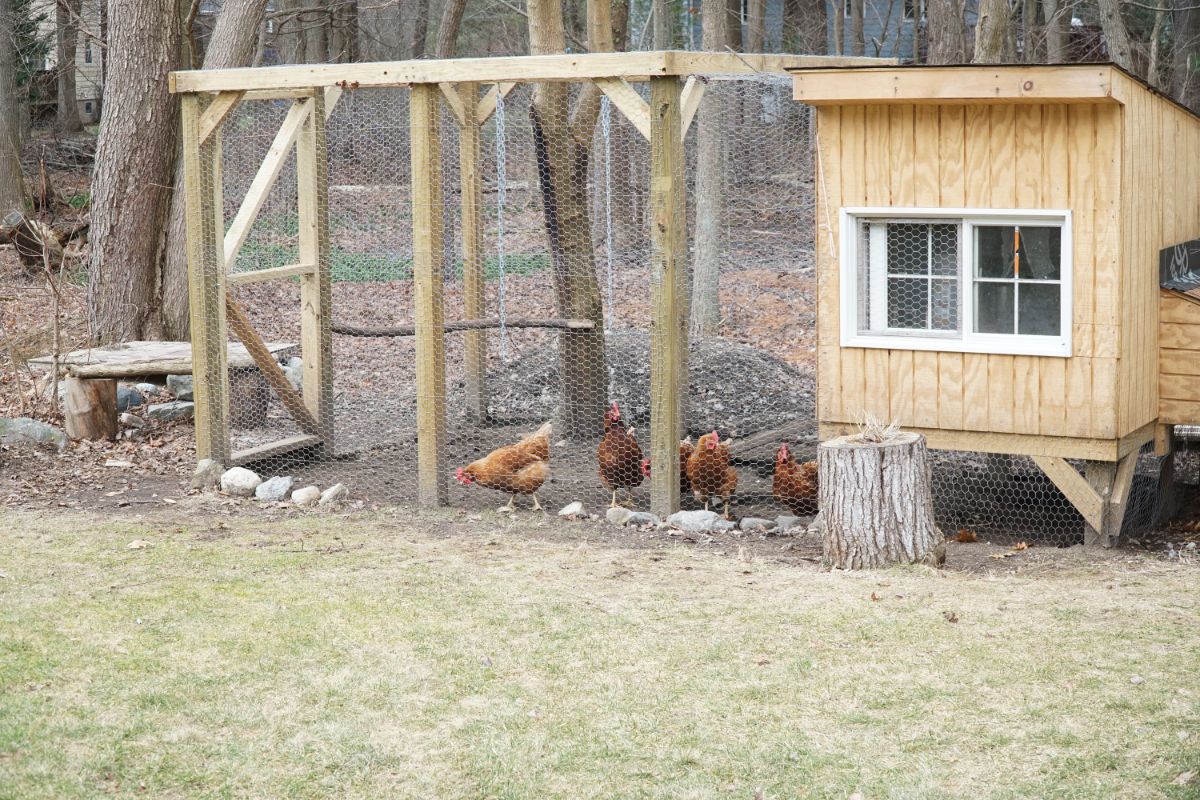
Before you jump in and add your chickens to the coop, make sure you have all the supplies and tools that you need stocked up and ready to go. A spacious and secure coop and pen, bedding, feeders and waterers, and high quality chicken feed are the essentials.
2. Choose the right coop for you
Chicken coops come in all shapes, sizes, colors, and styles. The sky really is the limit when choosing the right one for you and your future flock. You can build a cheaper DIY coop or opt for a more expensive pre-made one complete with roof shingles, windows and a garden area. Make sure to explore all of the options out there and choose the best one for your space and budget.
3. Make sure your chickens have enough space
You’ll want to ensure your coop provides at least 3 square feet of space per chicken. You should also have a pen attached to the coop that provides at least 10 square feet of space per chicken. The more room they have to move around, the happier they’ll be!
4. The more the merrier
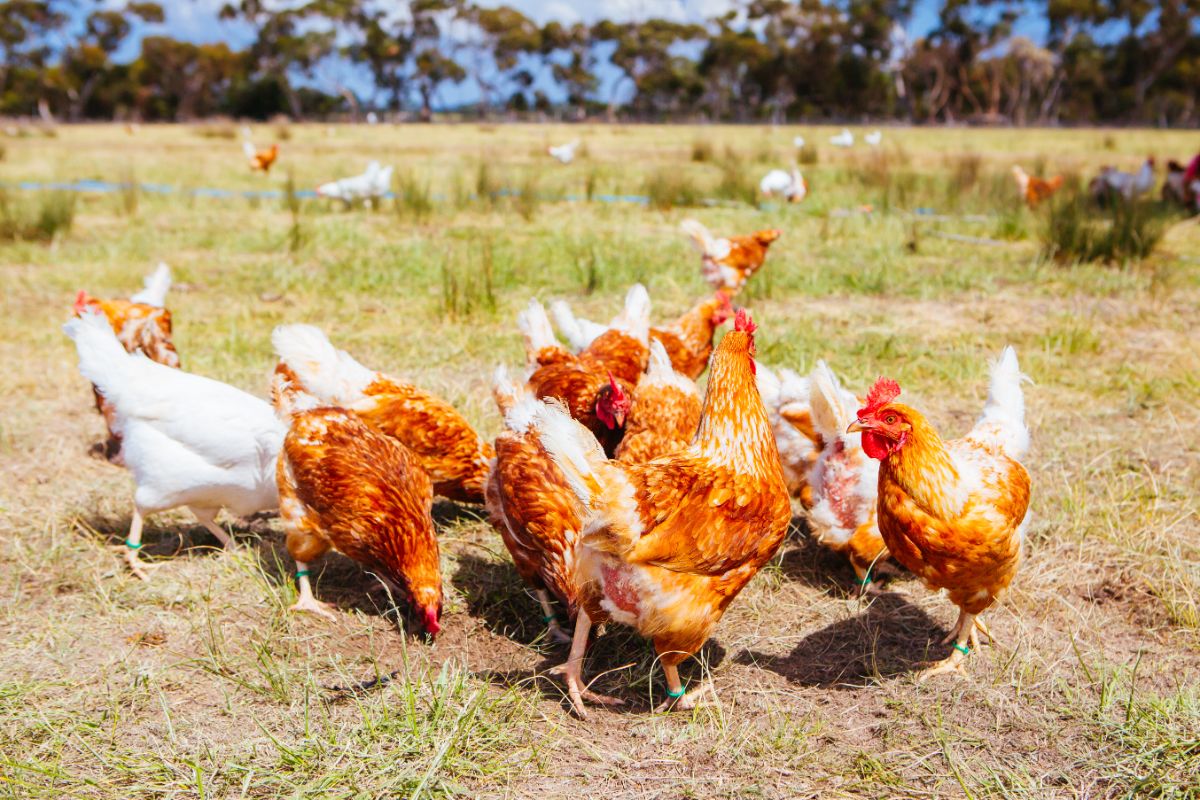
Chickens are flock-oriented animals. This means that they are happiest when part of a large group. Because of this, you should start off your flock with no less than three birds. However, if you have the space and ability to get more, your chickens will be happy to have the company.
5. Keep them cool in the heat
Chickens are hardy birds that can thrive in most climates. However, they can struggle with high temperatures. One way to combat this is to utilize shade by setting up a tent or other covering they can use to escape the heat. You can also plug in a fan to get the air moving through their coop.
6. Beware of predators
One of the most challenging aspects of chicken ownership is keeping them safe from predators, especially if you live in a rural area. Depending on the area you live in, natural predators can include hawks, foxes, coyotes, and more. The best way to protect your chickens is to fence in your yard and make sure their coop and pen is super secure.
7. Clean the coop at least once a week
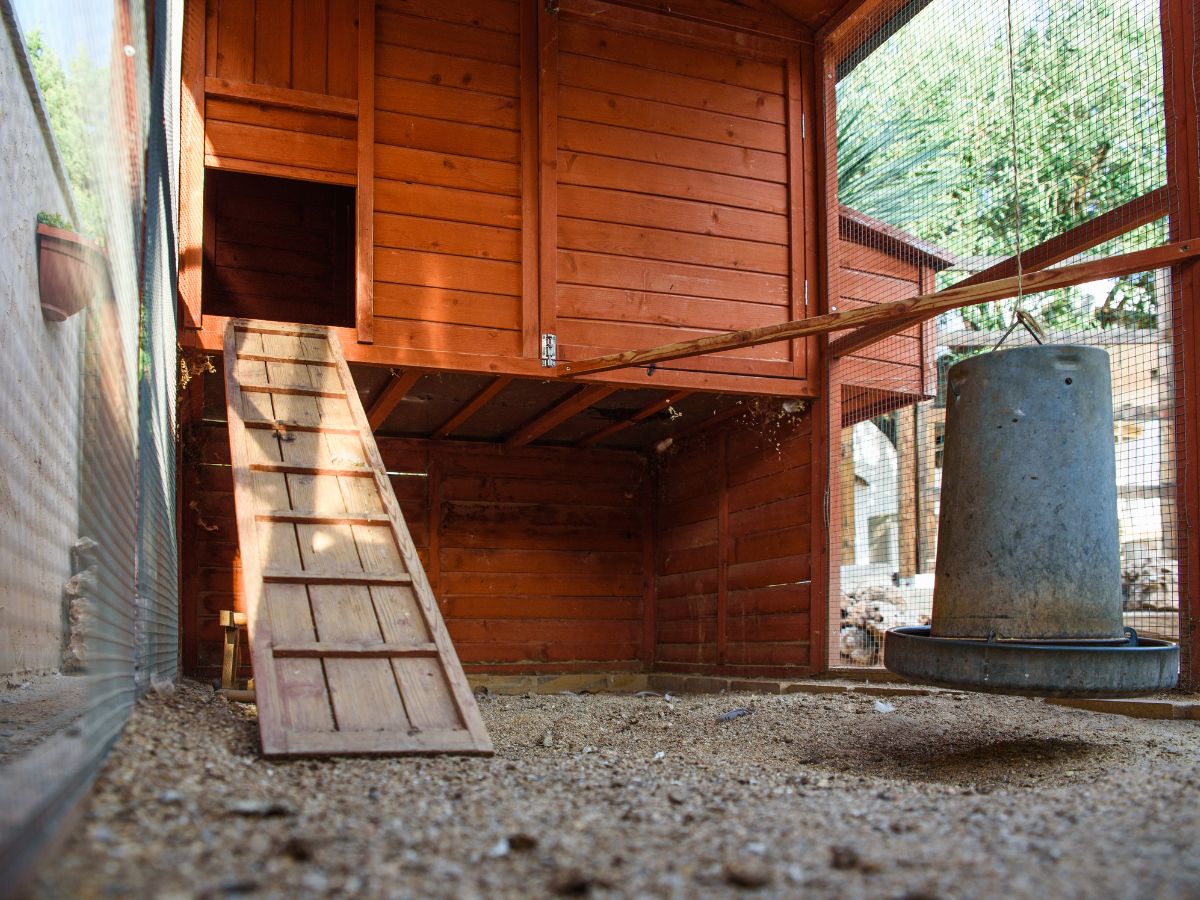
It’s best to keep the coop and pen clean for the health of the chickens. This is easiest if you tackle it once a week, so the mess doesn’t pile up too much in between cleanings. Change out the bedding and scrub all feeders and waterers to give your flock a fresh, comfy home.
8. Use dirty bedding as compost
Not sure what to do with all that dirty bedding? Don’t throw it away, use it as compost! Add it to your compost bin or use it as garden mulch - surprisingly, there are tons of nutrients in the dirty bedding that will help your plants to grow and thrive.
9. Check out your town’s ordinances
Before you purchase your coop and flock, make sure you can actually have them on your property. Some towns limit the number of chickens you’re allowed to have in your backyard, and some outright ban it. Make sure that you obtain a permit for the coop or chickens if one is needed. And if you’re going to be selling eggs, check out your local regulations for selling farm products as well.
10. Have one nesting box for every two to three chickens
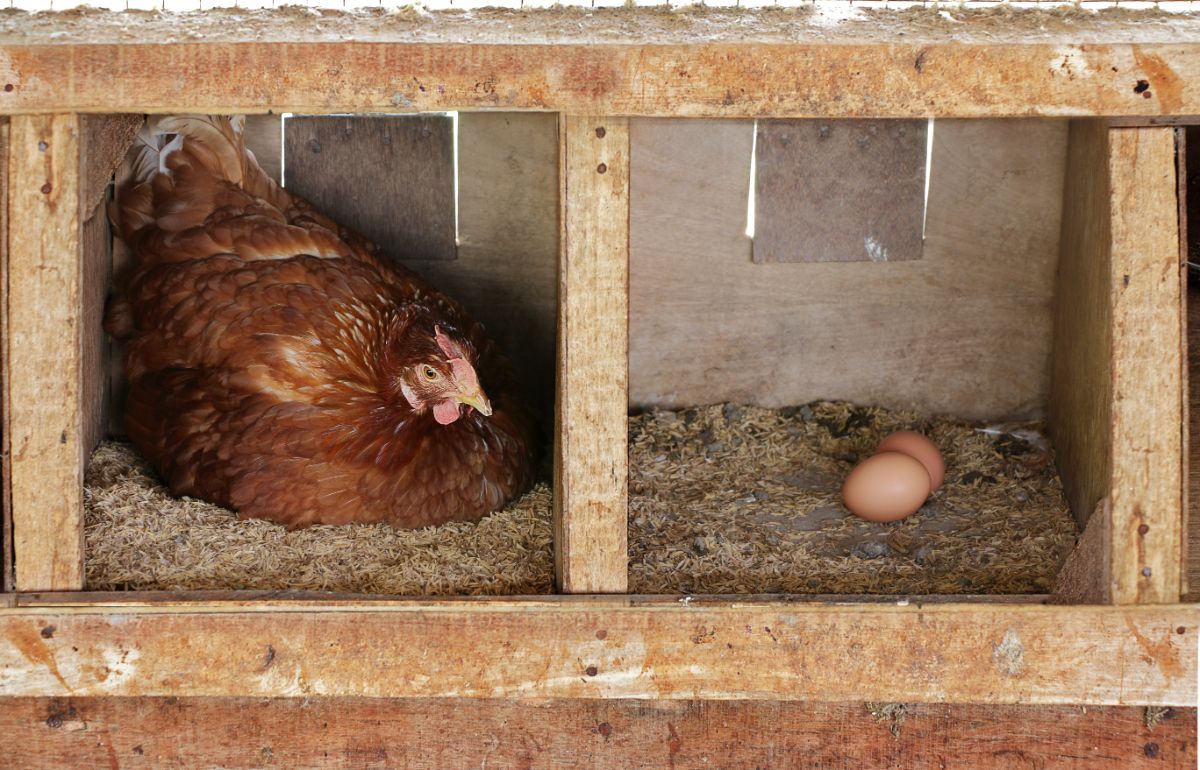
Nesting boxes are where your hens will go to relax and lay eggs. You’ll want to make them comfortable by adding bedding material that will cushion them and absorb their waste.
11. Fully enclose your chickens’ pen
An open pen won’t do - protect your chickens from predators by completely enclosing your pen. You can use fencing or netting to do this. Make sure it’s secure to prevent your chickens from escaping and predators from getting in.
12. Provide fresh food and water daily
Chickens are fairly low maintenance creatures. All you need to do on a daily basis is provide them with fresh food and water and make sure everything looks good in the coop.
13. Store chicken feed in a rodent-proof container
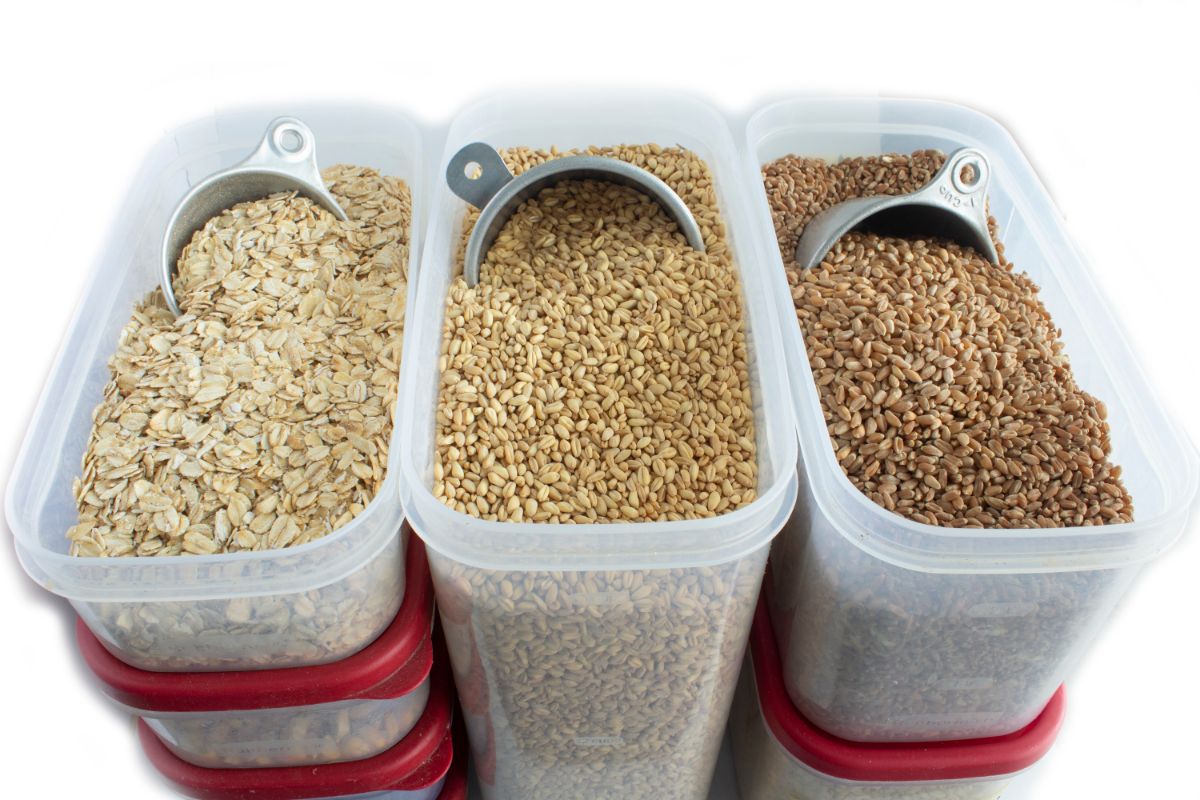
Make sure to store your chicken feed in a sealed container that rodents won’t be able to access. This will keep the feed fresh and free of mold, as well as prevent a rodent infestation.
14. Look for the right chicken feed
You want to make sure you’re providing your flock with the best quality nutrition possible, especially if you’re producing eggs for yourself or to sell. Make sure to do your research and find a feed that is right for your chickens’ life stage and breed. It should have a sufficient amount of protein and calcium, too, which are important nutrients for chickens.
15. Supplements can improve egg quality
There are several supplements you can add to your flock’s diet to improve their health as well as egg production and quality. The most common of these is calcium, which helps to form strong egg shells. Others include probiotics, flaxseed, brewers’ yeast, and sea kelp.
16. Feel free to treat them!
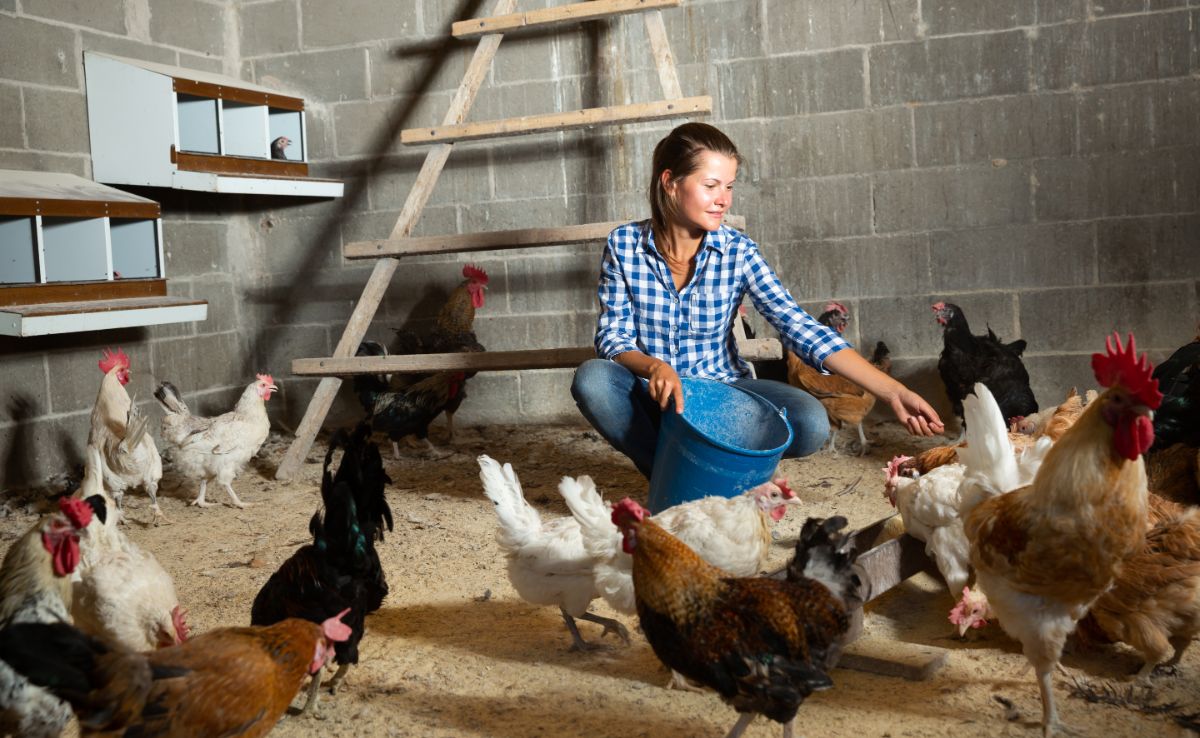
Kitchen and garden scraps are like treats to chickens. These are a great supplement to their regular feed, and can make up to 10 percent of a healthy hen diet. So go ahead and give your chickens any extra fruits, veggies, seeds, and meat/fish scraps you have on hand.
17. Chickens won’t overeat
This makes chicken ownership particularly easy, especially if you will be out of town for a week or two. You can fill up large feeders that dispense food as they eat it, so they will be fed for several days or weeks, depending on the size of the dispenser.
18. Have a first aid kit on hand
You never know when an injury or accident may occur. It’s wise to have a first aid kit ready to go for any emergencies. This should include tweezers, scissors, gauze, and vet wrap.
19. Know your local vet
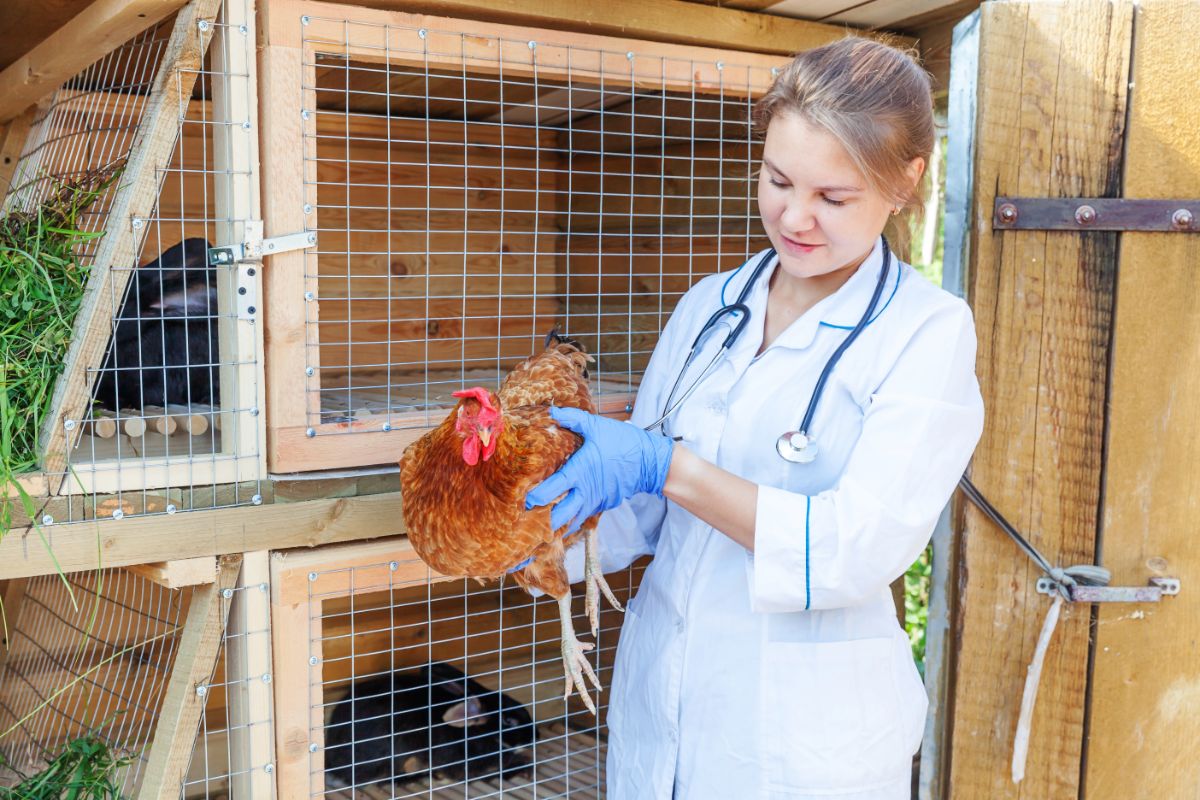
In case of a more serious emergency or illness, you should have the contact information of a local veterinarian. Make sure they work with farm animals, and specifically chickens. Many vets are specialized and only work with a certain type or size of animal.
20. Chicks vs. pullets
One of the first decisions you have to make when starting to raise chickens is which age group to start with. Chicks may be adorable, but they won’t start producing eggs for about six to eight months. On the other hand, if you opt for pullets, which are already at the six to eight month mark, you’ll start getting eggs almost immediately. But, you won’t get the cute factor or the imprinting that occurs with baby chicks.
21. Should you get a rooster?
Most backyard chicken owners choose not to get a rooster because of their noisy tendencies. There are also often stricter town ordinances on roosters compared to hens. If you want eggs, you don’t need a rooster. Pullets will start to lay on their own. In fact, if you don’t want fertilized eggs, which will grow into new baby chicks, you shouldn’t plan to get a rooster.
22. Adding new chickens to your flock
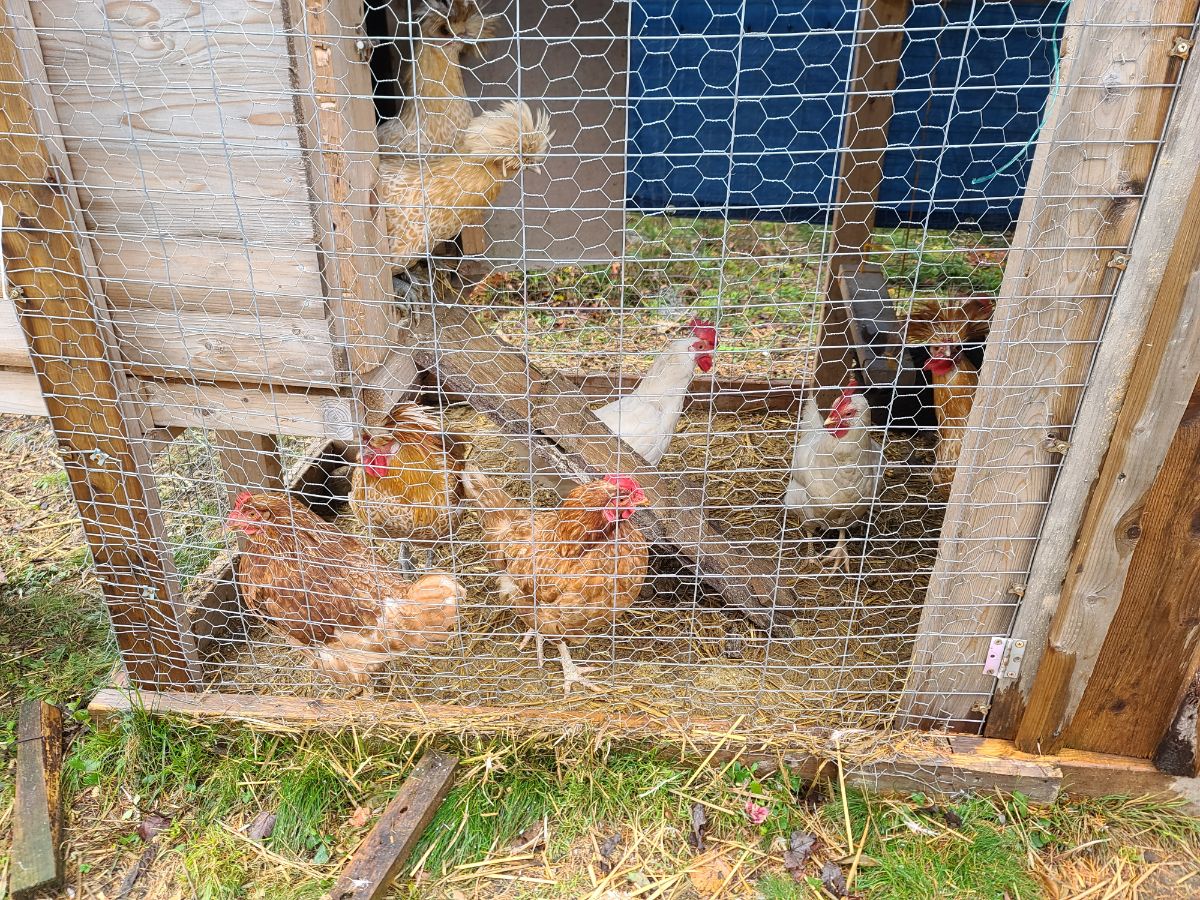
If you decide to add new chickens to your flock, it’s a good idea to quarantine the new arrivals for at least ten days. This will reduce the risk of spreading diseases and help to slowly introduce your new hens to your existing flock.
23. Exercise is a good thing
It should be a daily routine to let your chickens out of their coop every morning. The small enclosure will keep them safe at night, but it is restrictive during the day. They need to have space to move and stretch their legs. Access to their pen during the day is essential.
24. Keep an eye out for signs of illness
Most people don’t grow up with chickens, so it can be hard to know how to spot signs of illness. Luckily, there are a few easy signs that will tell you when your hens are feeling under the weather - these include lethargy, runny stool, bleeding, limping, missing feathers, runny eyes or nostrils, and black spots on their feet, combs, or wattles. It’s a good idea to look over your flock on a daily basis and keep an eye out for these signs.
25. Vet visits are optional
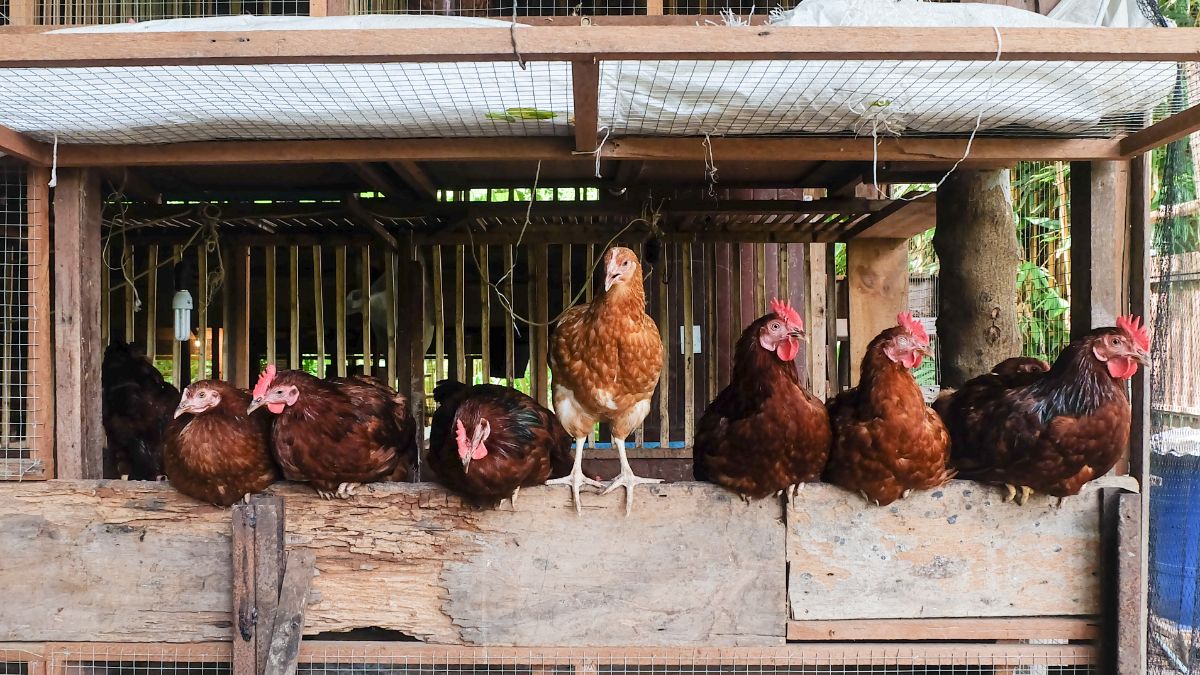
Routine vet visits aren’t the norm for chickens. Most illness and injury prevention happen at home during your daily flock assessment. Clean food and water, fresh bedding, and room to move around should be enough to keep your hens happy and healthy.
26. Egg production usually decreases during the winter
Your hens will lay an average of one egg per day. However, this number can vary based on their breed, age, diet, and even the weather. For example, during the winter months, you may notice your hens’ egg production drop. But don’t worry, it will pick back up when the weather warms up. You can install a light inside the coop with an automatic timer to simulate daylight during winter to keep them laying year-round.
27. Add a roosting bar to your coop
A roosting bar is where your chickens will sit and relax. Most pre-made coops will come with this already installed. But if you’re making a coop on your own, be sure to include one in your plans.
28. Research breeds before you buy
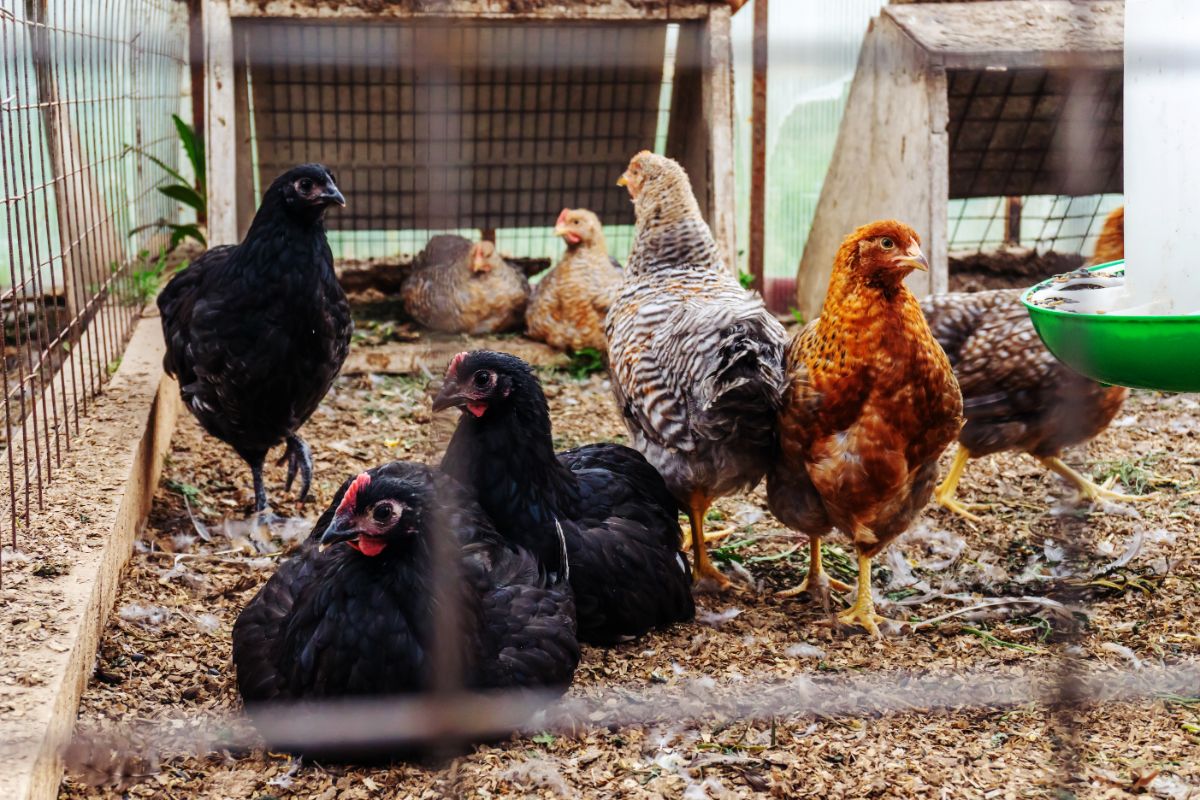
Picking a breed of chicken is an important step in raising your own hens. There are many breeds out there, ranging from ornate show breeds to more plain, hardy classics like the Rhode Island Red, which were bred to produce a lot of eggs.
Identify what you want in a flock. Do you want variety? Or do you want them all to be the same? How important is egg production to you? Will you be selling the eggs? Once you identify what’s important, research breeds that fit that criteria and choose from there.
29. Variety is the spice of life
Variety can be beneficial if you choose to sell your eggs. Many customers are drawn to different colored eggs. You can achieve this by choosing breeds that produce certain colors - for example, Ameraucanas lay blueish-green eggs, Rhode Island Reds lay brown eggs, and Andalusians lay white eggs. If you raise all three, you’ll have a multi-colored dozen to sell to customers!
30. Respect their privacy
It may not come as a shock - hens prefer their privacy while laying eggs. But you can feel free to enter the coop once or twice a day to feed, water, and collect eggs. Just don’t disturb them too often, or they may start laying in places you don’t want them to.
31. Wait to try out egg incubation
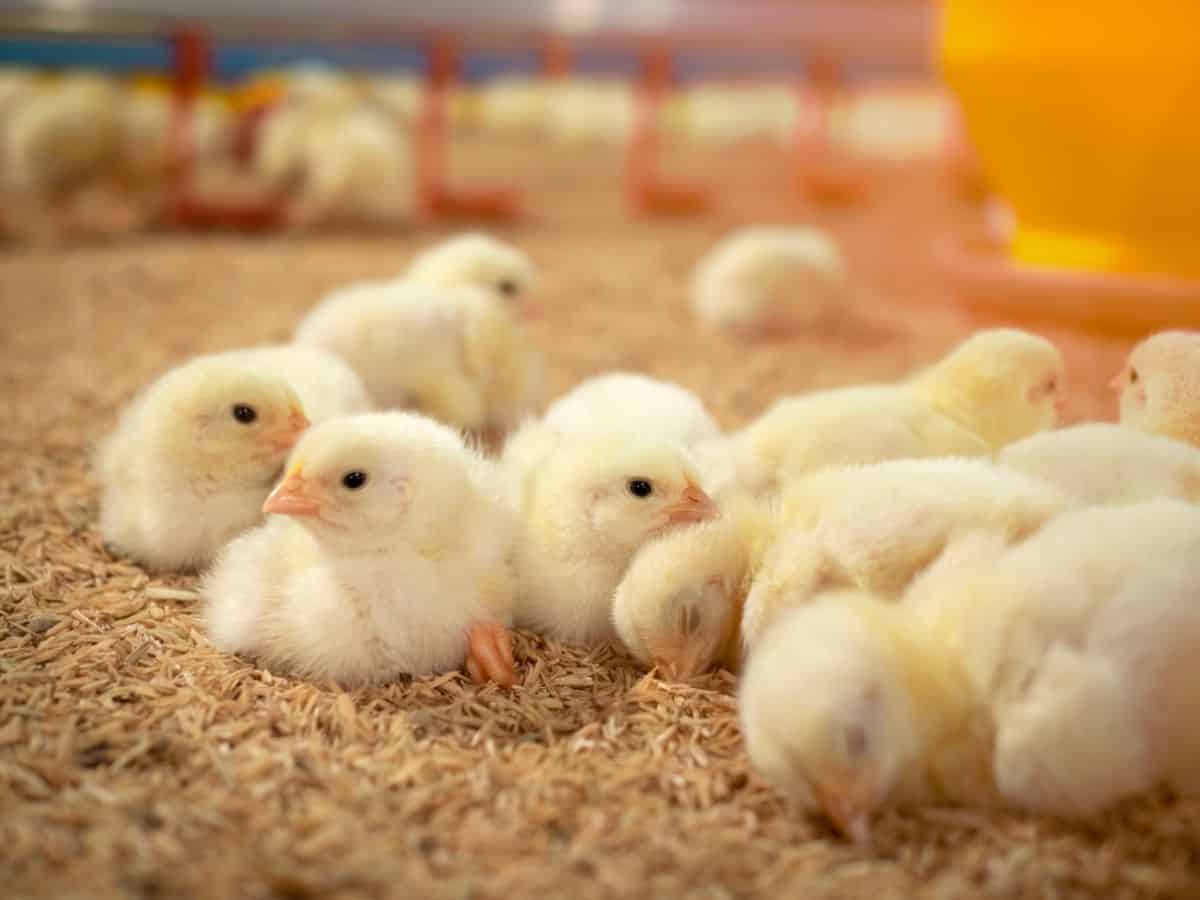
While it may seem like a fun idea to hatch your chicks from eggs, this actually requires a lot of work and dedication. So unless you have the time to commit to egg incubation, it’s recommended that most first time chicken owners start with chicks or pullets.
32. Where to get your chickens
Your local feed store will likely have chicks for sale in the springtime. You can also order chicks or pullets at any time of the year from online hatcheries. Another option is checking out Facebook Marketplace or Craigslist to see if any local farms are selling chicks, or if there are backyard chicken owners who are looking for a new home for their flock.
33. The chicken tractor option
Another option for a coop and pen is a chicken tractor. However, this is only a viable option is your have a substantial amount of land. A chicken tractor is a coop on wheels that is designed to move every day or two. This allows the chickens to dig around in the soil for insects, therefore loosening it up. This is a good option is you have a small farm or homestead.
34. Provide heat lamps in the winter
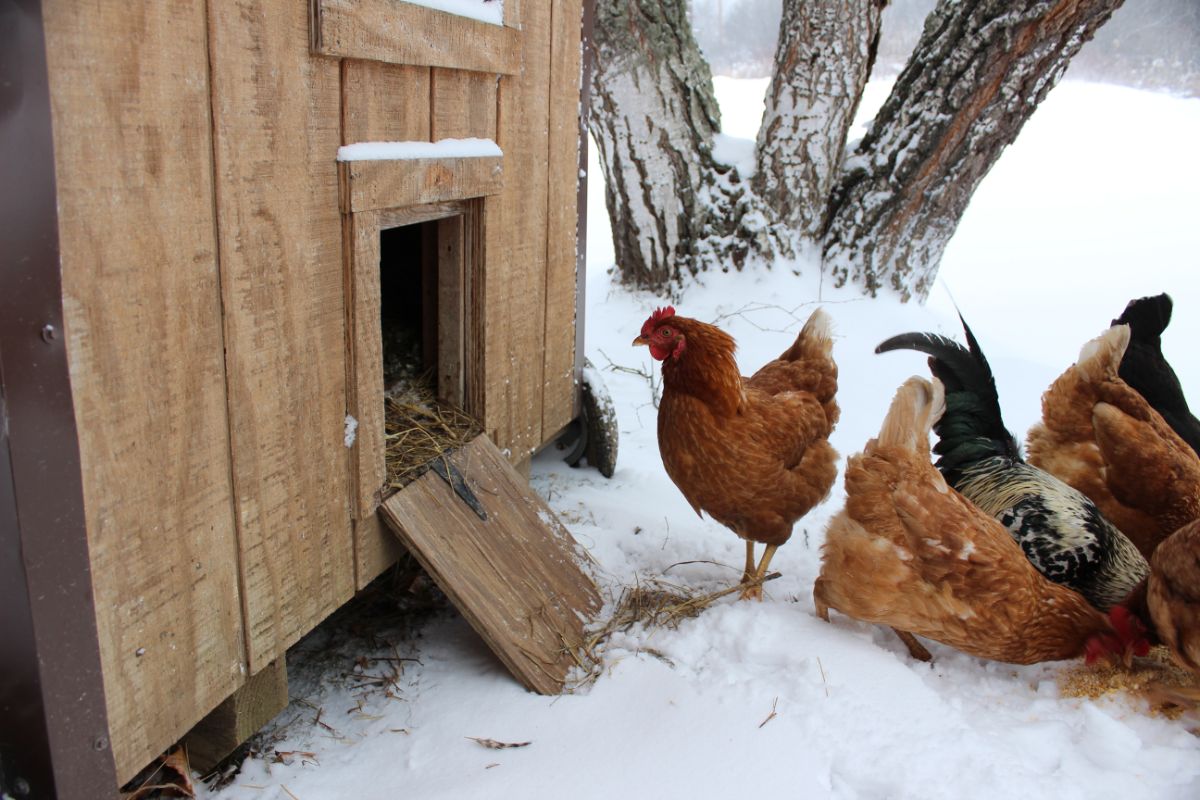
Just as chickens don’t do well with high heat, they also can struggle with extreme cold. One option to help with this is to install heat lamps in the coop during the winter to keep them nice and toasty.
35. Provide a heated waterer in the winter
Similarly, a heater water bowl can help during the winter months if you live in a cold climate. Shallow waterers can freeze over easily, requiring you to go out to the coop every few hours to break the ice. A heater waterer can prevent this.
36. How to tell when your pullets are getting ready to lay eggs
Are you tired of waiting for your young pullets to starting laying? Do you have no idea what signs to look for? Luckily, there are a few tell-tale ones that let you know your soon-to-be-hens are getting ready to lay for the first time. These include a darkening of their combs and wattles, squatting when approached, inspection of the nesting boxes, and increased eating.
37. When egg laying slows down
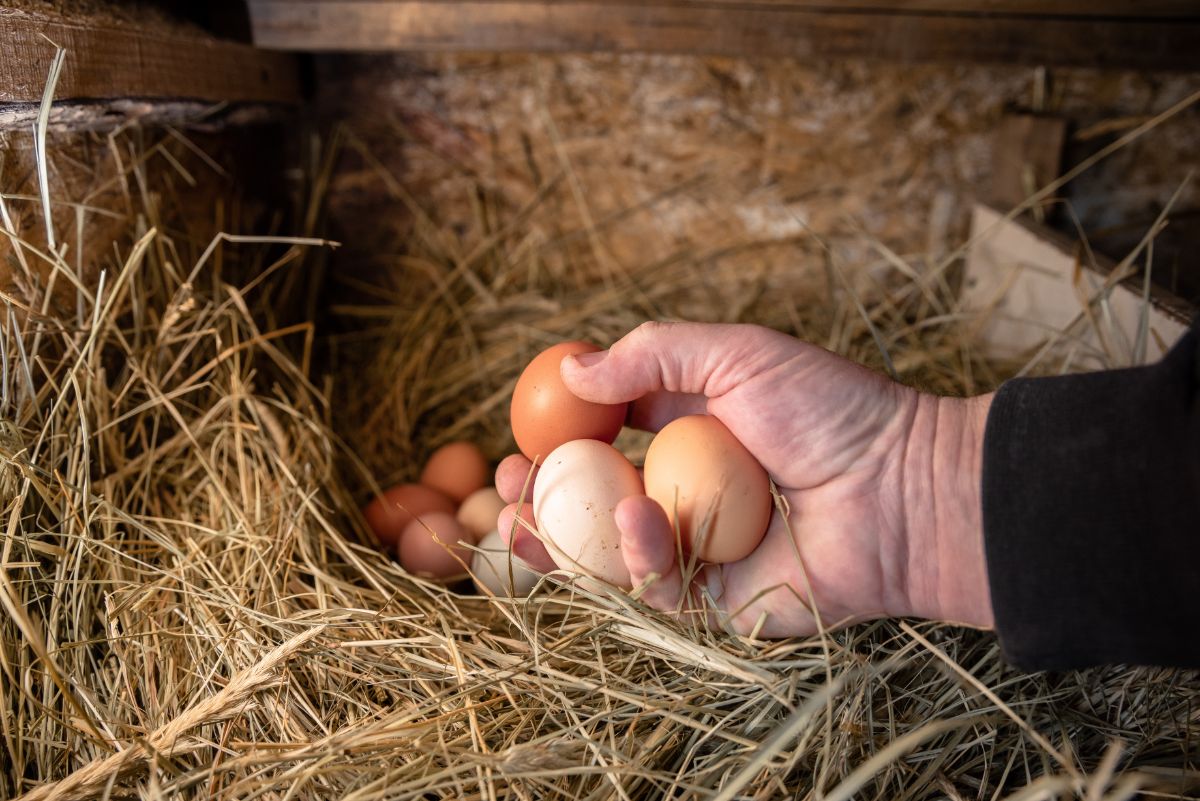
They say good things get better with age, but unfortunately, egg production is not one of them. After three years old, your hens will start to lay less and less eggs every year.
38. Molting
Molting is the process of shedding old feathers and growing new ones. During this process, your hens will most likely stop laying eggs altogether.
39. Foods to avoid
Although chickens can eat nearly everything (they are omnivores, which means they can eat both plants and meat), there are a few foods that they should avoid. Apples and tomatoes can cause digestive problems if eaten in excess, and chickens tend to not like potato peels, orange peels, and bananas.
40. To wash or not to wash?
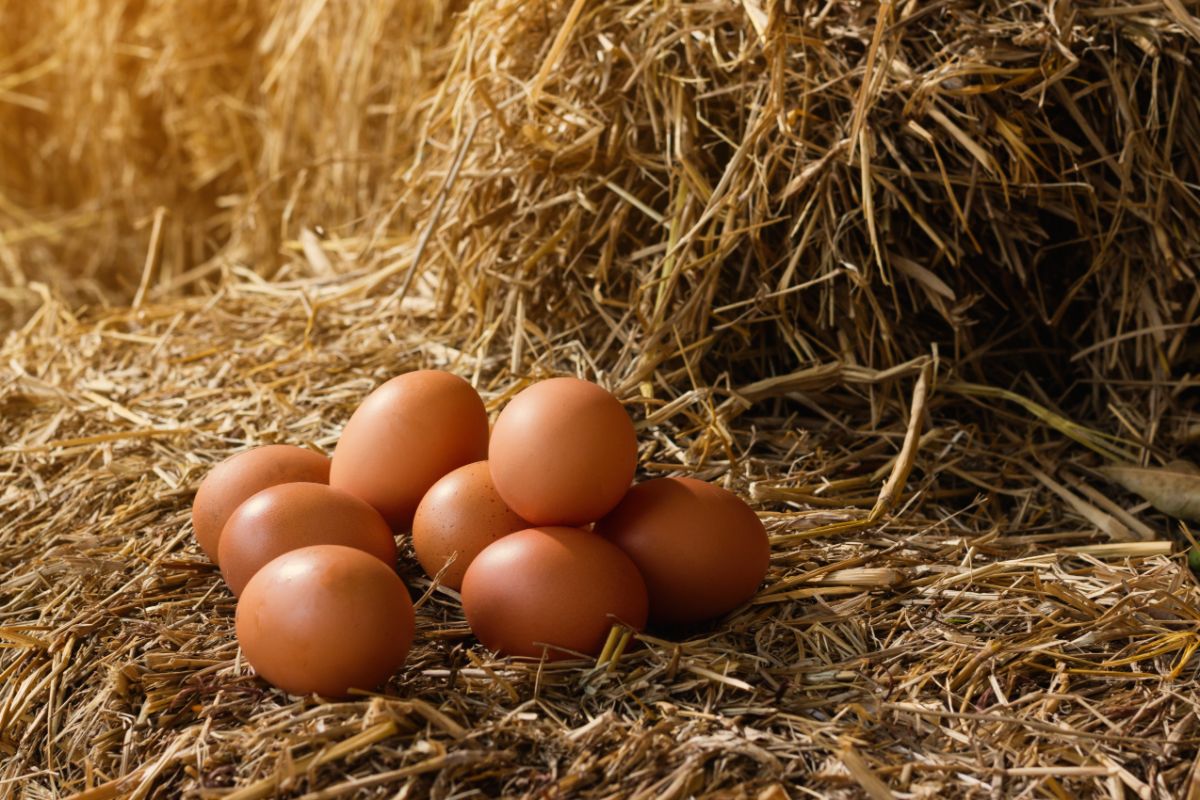
After your daily egg collection, it’s advised that you bring them inside and put them in the refrigerator. However, there is some debate as to whether or not you should wash them first.
Those who are against argue that by washing, you are washing off the bloom, which is the membrane that surrounds and protects the egg from bacteria. Those who are for washing want clean eggs in their fridge. A compromise is to wash them very gently in warm water.
Keeping chickens is not difficult if you are prepared and stocked up ahead of time with everything you’ll need. If you follow these tips, you’ll be well on your way to having happy, healthy chickens that will produce fresh eggs for you and your family every day.
Make sure you do your own research, but don’t be overwhelmed by all of the options out there. There are many different ways of raising chickens - different coops, diets, and more - but the important thing is that you choose what works for you and your situation.
Happy chicken raising!
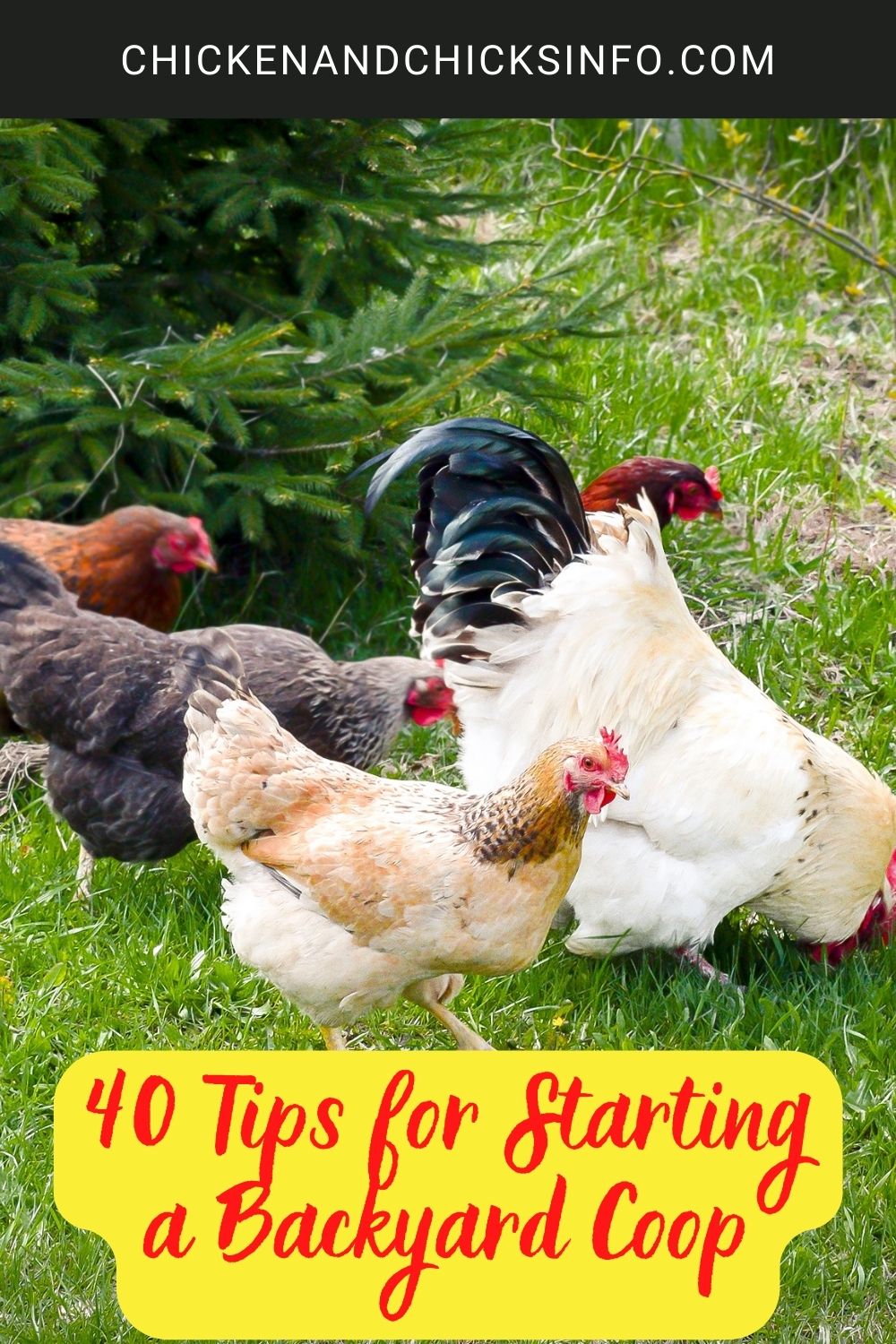
Sources:




